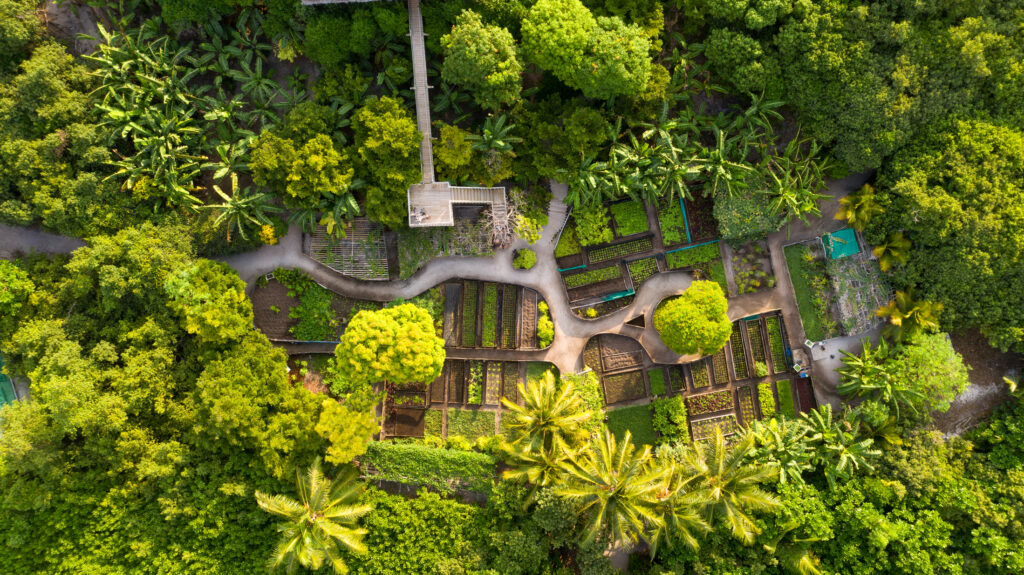Globally recognised; this year’s Earth Day theme is centred around investing in our planet. With Skift reporting that 73 percent of global travellers have identified sustainability as a key driver in their travel decisions, BIRD has handpicked a selection of the properties who are spearheading sustainable living, reforestation, conservation and more around the world for travellers seeking to give back, not just for Earth Day, but for every day.
Marbella Club Launches Seahorse Repopulation Project
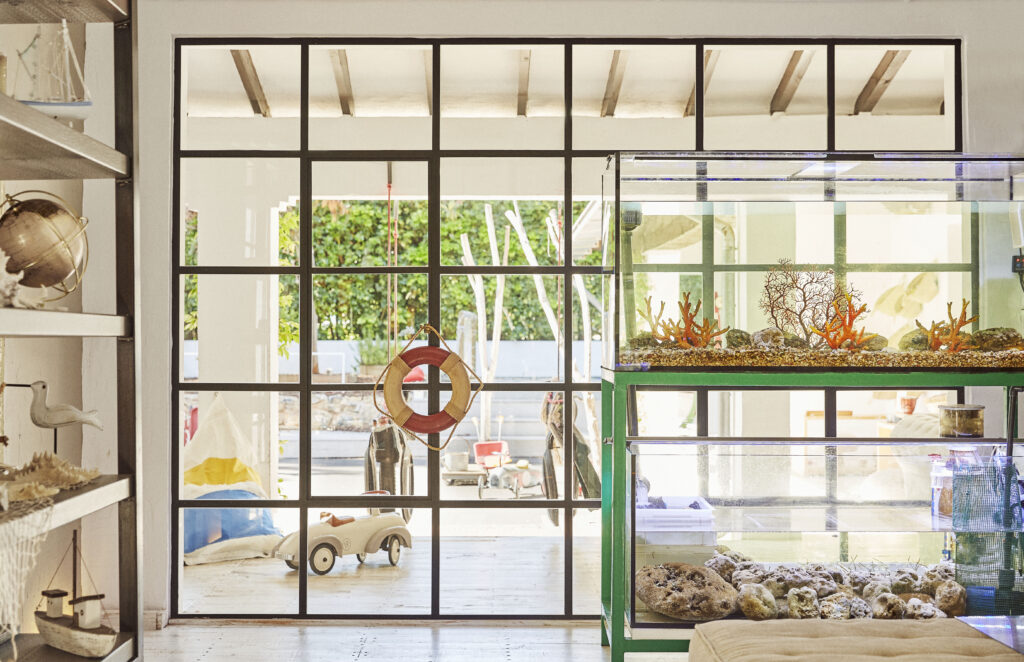
Iconic beachfront resort Marbella Club in Andalusia has announced a four-year long seahorse rewilding project in collaboration with marine conservation research centre Aula del Mar (Classroom of the Sea), with the long-term goal of contributing to the conservation of seahorses in the Mediterranean Sea and helping recover their carbon sequestering seagrass meadow habitats. As the ‘lungs of the sea’, one hectare of seagrass absorbs as much carbon dioxide as 15 hectares of Amazon Rainforest, making the seagrass meadows a vital habitat in mitigating the damaging effects of climate change. With seahorses extremely sensitive to changes in ocean chemistry caused by climate change, their unique morphology and ecology makes them the ideal species for monitoring the global health of the fragile coastal seagrass ecosystems they inhabit. The Marbella Club is raising public awareness around the need to conserve seahorses with talks, workshops and trainings offered to those in the education, tourism, fishing and maritime sectors to encourage local stakeholders to develop collaborative blue carbon ecosystem restorative strategies. The seahorse conservation nursery aquarium has been built in the Marbella Club’s spacious Kids Club, to encourage and teach a new generation of young rewilders to learn more about marine life and ocean conservation.
Reduce, Recycle, Inspire: Soneva Namoona
Leaders in intelligent luxury, Soneva has been combining a conscientious, proactive approach to sustainability with exquisite luxury and intuitive personalised service since 1995. Soneva launched its Total Impact Assessment in 2016, a first for the hospitality industry, measuring its social and environmental impacts. A mandatory 2% environmental levy is added to every Soneva stay, with proceeds going towards the not-for-profit Soneva Foundation to offset both direct and indirect carbon emissions from resort activities and guest flights. Through the Soneva Foundation, the team has launched projects such as Ark2030, with the mission to restore the 500 million hectares of ecosystems destroyed by mankind since the beginning of the industrial revolution. Working with specialist partners around the world, Ark2030 brings blended funding models to develop and scale up the most exciting ecosystem restoration programmes.
Looking ahead, Soneva has set its key sustainability goals for 2022 aiming to: establish one of the world’s largest coral nurseries that will produce 50,000 coral fragments a year; plant one million trees; remain carbon neutral; and continue to build on impactful projects managed by Soneva Namoona, The Soneva Foundation and SCI:ENCE at Soneva.
Sustainable communities and skill swapping at SALT of Palmar, Mauritius
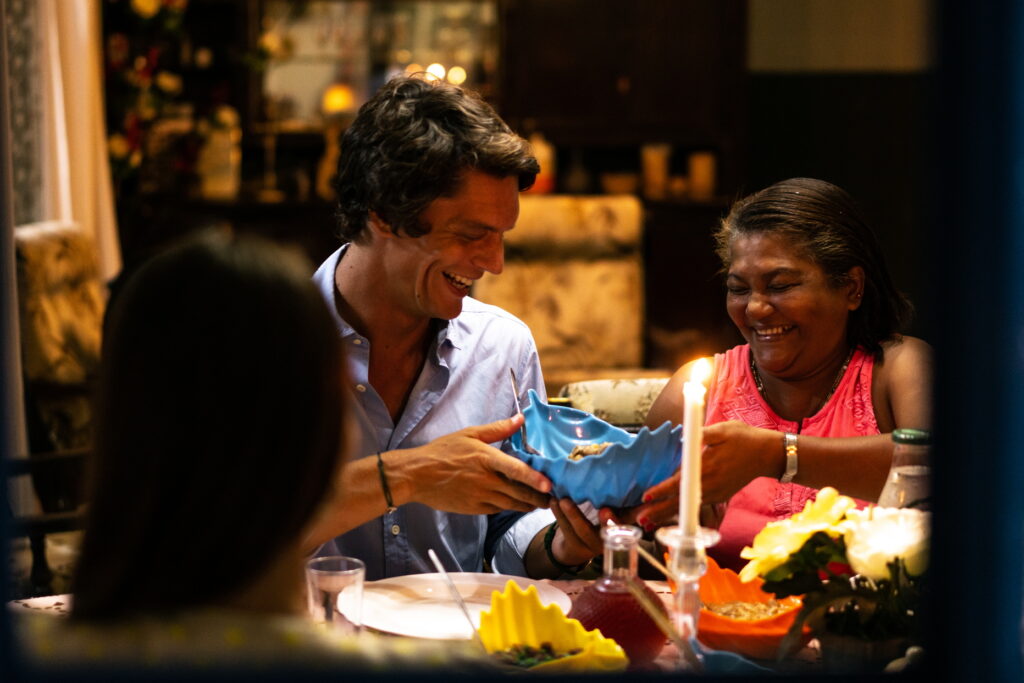
With the purpose and philosophy of connecting modern explorers with meaningful travel experiences; taking guests to people – not just places – is at the core of the progressive adults-only Mauritian hotel SALT of Palmar. Promoting learning, upskilling, and sharing; this is the perfect paradise for adventurers of all kinds to be immersed into the heart of Mauritian life, with the opportunity to connect directly with locals via the Skill Swap programme – exchanging their time, talent & skills with the local people. Guests are invited to connect directly with locals like Soobiraj, the palm heart grower whose plantation can be visited upon request or Selva whose pesticide-free aromatic herbs and vanilla are cultivated at his home in St. Julien a short 20-minute drive from the resort. As one of Mauritius’ only vanilla producers, Selva provides an exclusive and immersive experience, introducing guests to his traditional methods of farming which requires untold patience and vigilance.
Every guest at SALT of Palmar receives a copy of This Is Mauritius – a guidebook created by the talented locals who know the people and places that make the island tick – and a local SIM card on arrival, encouraging them to get out and explore hidden gems whilst giving back to the island.
Celebrating 10 years of rainforest conservation at Mashpi Lodge, Ecuador
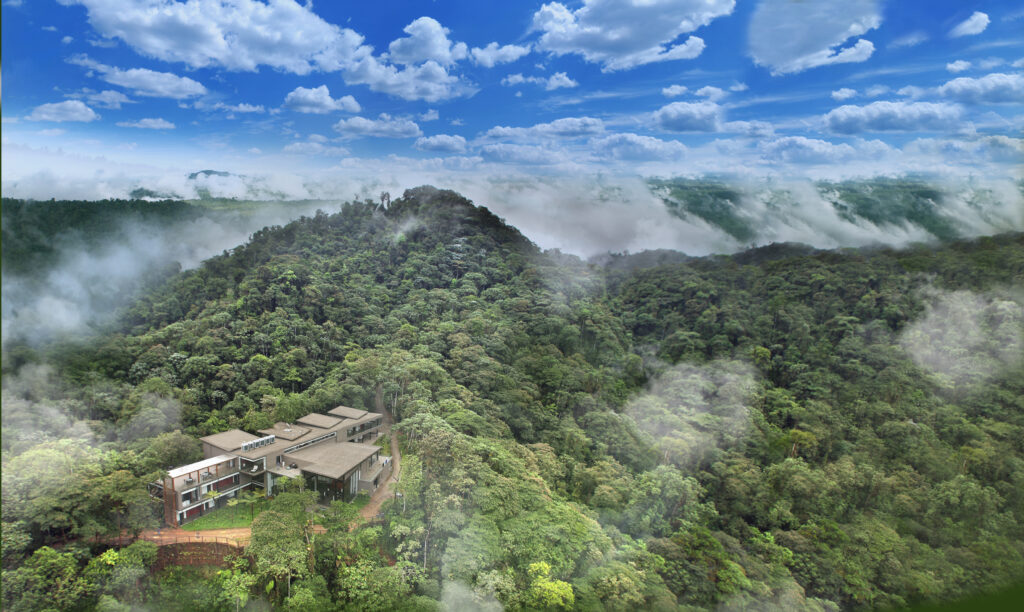
A centre for conservation in the heart of the Ecuadorian cloud forest, Mashpi Lodge celebrates its 10th year anniversary after launching as a pioneer of leading scientific research and sustainability back in 2012. As the hotel enters a new era, Mashpi Lodge continues to break bounds in sustainability. Thanks to Metropolitan Touring, Mashpi’s sister-company and Ecuador’s foremost DMC, going carbon neutral, the Mashpi Reserve has recently doubled in size, expanding from 1,200HA to 2,500HA, with the longer term aim of protecting a further 15,000HA by 2040. Over the past year, the lodge has partnered with revolutionary tech organisation Rainforest Connection - the world’s first real-time eco-acoustic monitoring company – to strategically place pioneering monitoring systems around the reserve with the primary aim of detecting sounds related to illegal deforestation and poaching. Using Rainforest Connection’s real time data, conservationists have access to a trove of eco-data that can be used to also track animal movement patterns and monitor endangered species. Guests at Mashpi Lodge will have the chance to spend time with scientists and conservationists to help analyse the sounds and head out excursions to spot the species they have helped identify. The Mashpi Reserve is one of the most biodiverse places in the world and home to over 400 species of animals including pumas and this year, the Mashpi Glass Frog (Hyalinobatrachium Mashpi), was discovered by using the Forest Guardians to record the frog’s distinct call, following five years of research into this elusive species that lives high up in the trees and is just 2cm in size. In February 2022, scientists began an ocelot rewilding project and since, a pair of ocelots raised in captivity have successfully been released into the reserve wearing GPS devices. Data will be monitored for 12 months following their arrival to ensure longevity and sustainability of the rewilding project and allows scientists to study the behaviour of this feline species.
Giving back to the people and the planet in Sri Lanka with Resplendent Ceylon
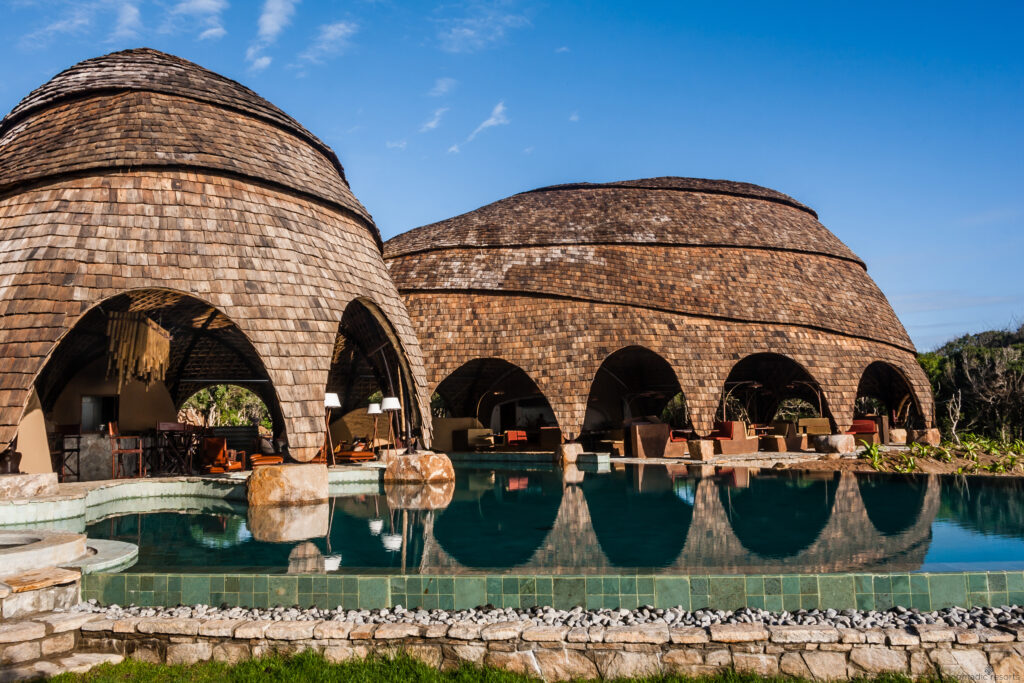
Created by the Fernando family – Sri Lanka’s most prominent tea producers and founders of Dilmah Tea – Resplendent Ceylon is a collection of small, unique luxury resorts that form a “trail” across the island. Since its conception, the brand has been dedicated to the preservation of Sri Lanka – it’s wildlife, environment, and people. As such, 15% of its profits are channelled into the Fernando family’s two charitable foundations. The first is the MJF Foundation, which has changed the lives of over 100,000 underprivileged Sri Lankans. The Foundation has awarded over 250 educational scholarships to members of the tea making families, provided livelihood assistance to 1,008 families, supported over 220 individuals through the Small entrepreneur Programme and provided holistic development programmes for children across the island. To date, over 150 differently abled children have been provided with special education, therapy, and training through the Foundation’s work. The second is Dilmah Conservation, which focuses on biodiversity conservation, environmental education and heritage conservation. Within Dilmah Conservation is the Centre for Climate Change Research and Adaptation, the first private sector facility of its kind in the world. Its purpose is to research and identify practical solutions to help tea, rice and other farmers understand and adapt to the reality of climate change by bringing climate scientists, entrepreneurs, and farmers to bridge the divide that exists in understanding the threat that a changing climate poses, while discussing solutions and opportunities in climate-smart agriculture and innovation. Meanwhile, the One Earth Urban Arboretum on the outskirts of Colombo is a living demonstration of nature’s life-sustaining function, with over 500 species of plants. Dilmah Conservation has also finalised plans to open a non-profit Leopard Research Centre at Wild Coast Tented Lodge in Yala National Park. The centre will house five full-time researchers and a Tourist Visitor Centre which will focus on providing funding, facilities and logistical support for them and their projects focussing on the conservation of the Sri Lankan Leopard.
